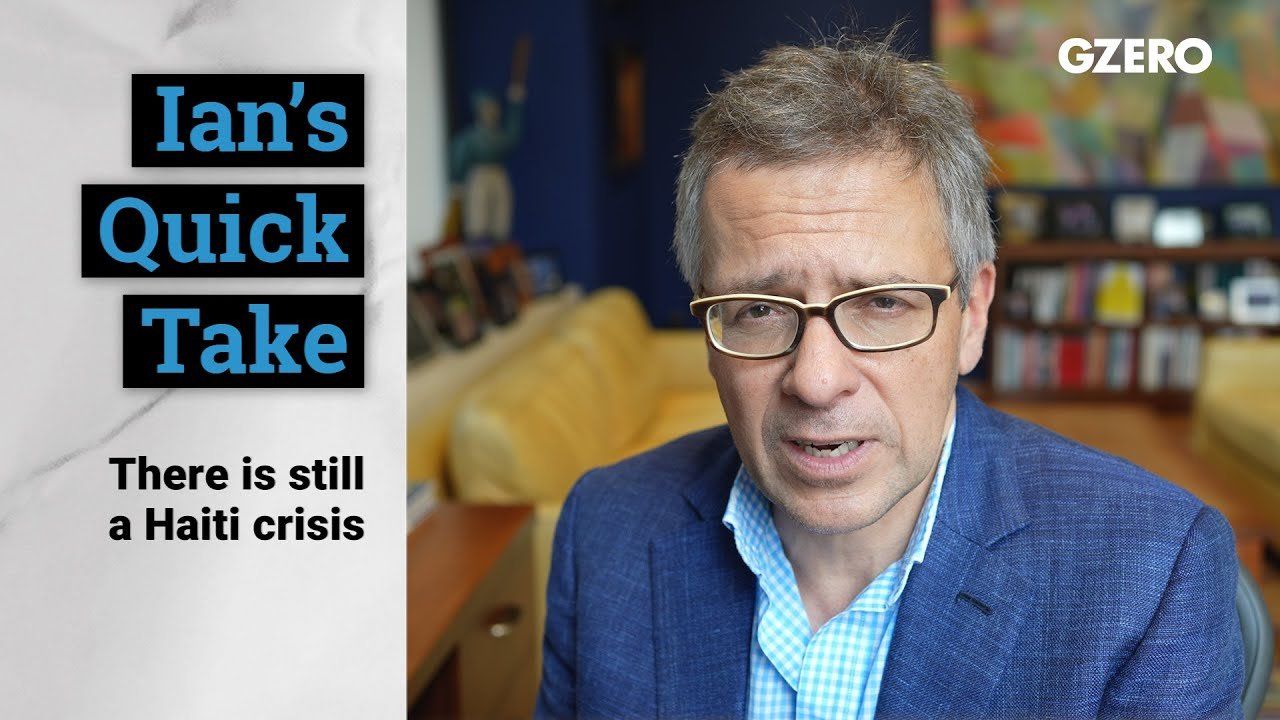July 17, 2023
Hey everybody. Ian Bremmer here, Quick Take to kick off your week and I want to talk about something that we've really spent almost no time talking about. Neither has the media, but it deserves our attention.
And that is the crisis in Haiti. It is the poorest country in the western hemisphere, despite being the wealthiest colony a few centuries ago. Over 50% of the population under the poverty line, and today it is a failed state with no government, no legitimized governance. Instead, the capital city is controlled by criminal gangs, and some of the surrounding countryside as well, has only deteriorated since 2021 when the president, Jovenel Moïse, was assassinated. Still with all sorts of questions as to exactly who was behind that and how violence has escalated since then. Overwhelming the underfunded police force while the security forces that remain are corrupt and ineffective and largely tied to the gangs themselves.
The United Nations reports that this situation has descended into what they call a catastrophic spiral of violence. Gangs shooting indiscriminately at people on the street, firings into their homes, burning people alive on public transport. Because the Haiti government can't respond, civilians are forming vigilante groups to fight the gangs and lynching of suspected members and the rest, I don't know if you all saw "Escape from New York", it's sort of like that, but not as cinematic. It's only 700 miles away from Florida, which is just far enough away to not pay attention. And of course, the Haitians are not Europeans like Ukraine. And so getting nowhere near the attention from the media, nowhere near the influencers on social media, the care nowhere near the international aid or support. The situation is desperate and there is no path to fixing it. There have been talks to try to resolve Haiti's political crisis, but last week they hit a deadlock.
And absent that, there's no willingness to deploy international forces that would help to combat criminal gangs who continue to terrorize the country. My friend, the UN Secretary-General António Guterres, has called for the Security Council to issue a deployment of peacekeeping forces, but so far that has gone nowhere. The Americans are asking the Canadians to do more. The Canadians are saying, "Well, unless there's support on the ground from a government, we're not going to provide forces." They'll provide some funding for the police. But of course, if there's no government on the ground that there's no legitimacy. This clearly is a case where the G-7 as a whole plus concerned members of the Global South need to come together and actually have a peacekeeping force, need to be providing a level of rule of law and accountability and also need to shine a light on this issue.
And frankly, the only way that's going happen is much more pressure. I know a friend of mine, Richard Engel from NBC, is planning on going over there and starting some coverage soon. I think that will be helpful. The major, mainstream media on the left, on the right in the US and internationally needs to be sending more correspondence. I know it's hardship duty, and I know it's dangerous, but thank God for them. They need to be doing more coverage of Haiti so people understand this. I'm going to do our best to try to make sure that we do more than we have been. GZERO has been on it, but nowhere near frankly, what we should be. And I do hope that we can help to turn the page on what has been an utter catastrophe for the 11 million Haitians that are living in this situation.
Thanks a lot for this, and I hope to talk to you soon. Bye.
More For You
- YouTube
In this Quick Take from Munich, Ian Bremmer examines the state of the transatlantic alliance as the 62nd Munich Security Conference concludes.
Most Popular
Thousands of demonstrators rally in support of the Iranian people during an anti-Islamic Republic protest outside the White House in Washington, D.C., USA, calling attention to opposition to Iran’s government, on Jan. 17, 2026.
Robyn Stevens Brody/Sipa USA
Eurasia Group’s Iran expert Greg Brew speaks to GZERO about whether the US will hit Iran again, and what that could look like if they do.
Think you know what's going on around the world? Here's your chance to prove it.
© 2025 GZERO Media. All Rights Reserved | A Eurasia Group media company.
